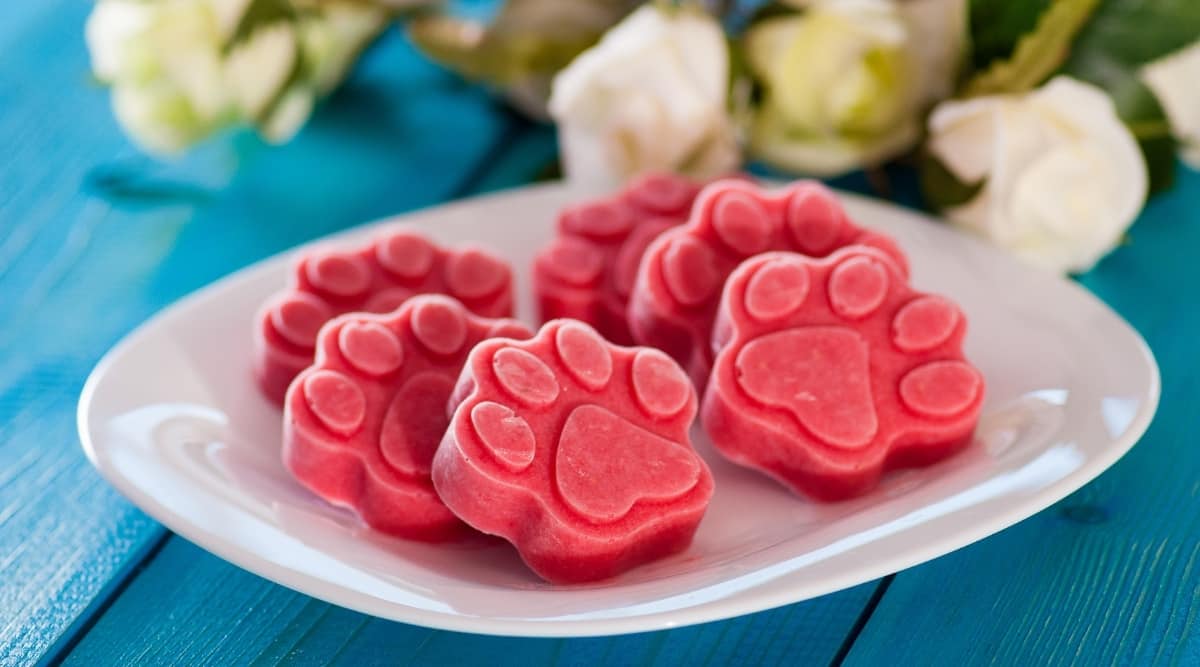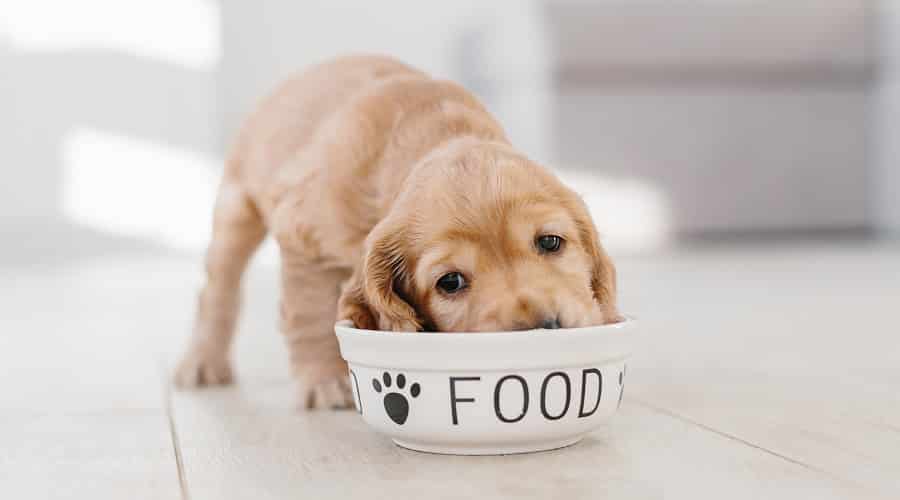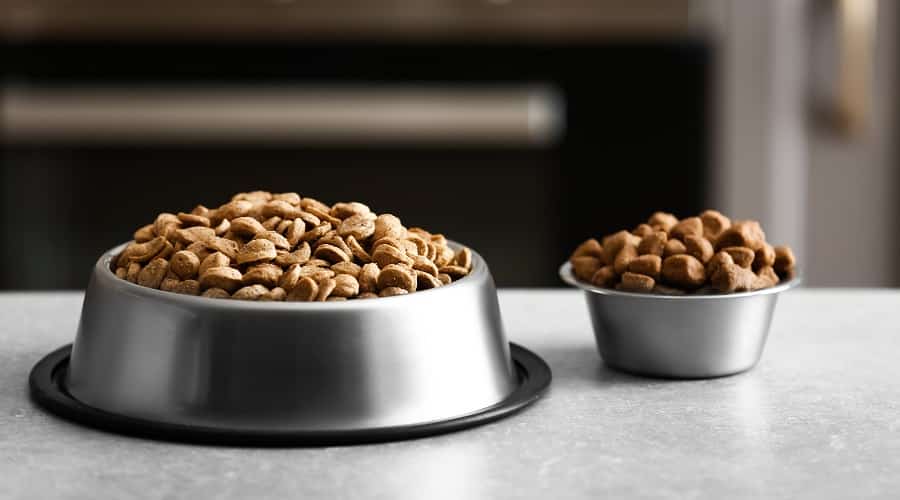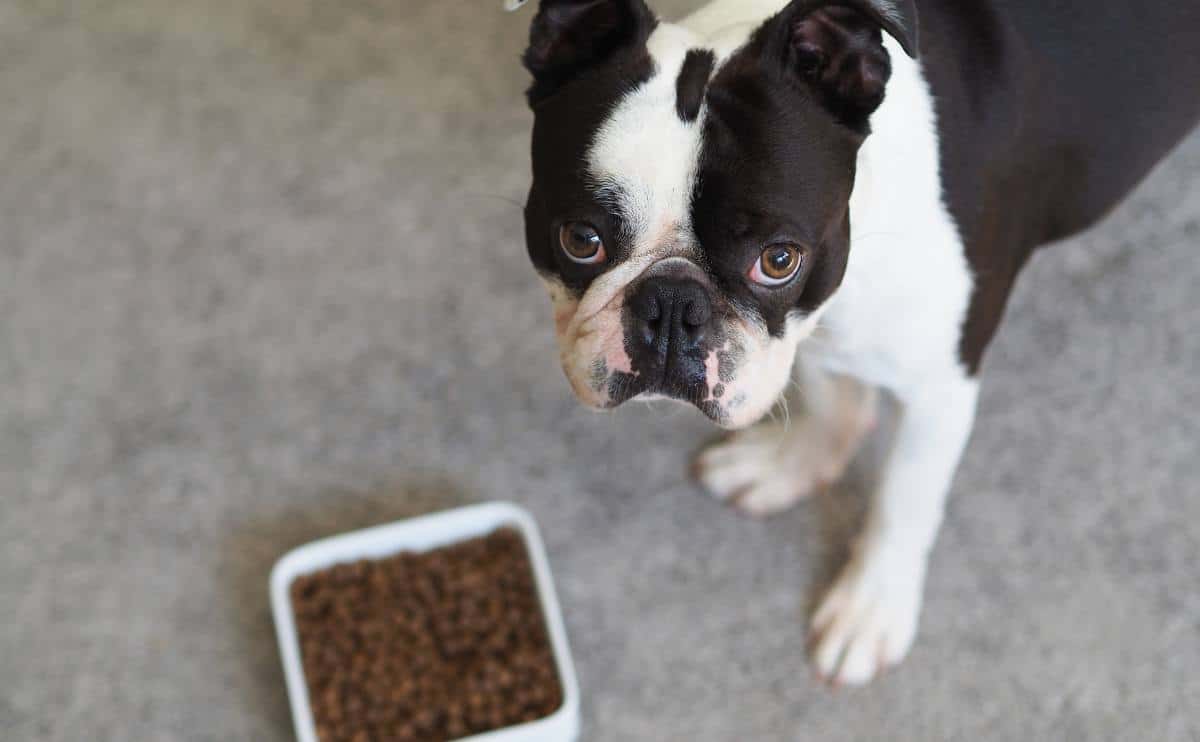Dogs Eating Strawberries: A Safe Snack Or Vet Visit Waiting To Happen?
When you purchase through links on our site, we may earn a commission. Here’s how it works.

There’s something about those juicy, vibrant red strawberries that makes them hard to resist—so it’s no surprise that your dog might be eyeing them, too. But can dogs eat strawberries? As much as we love sharing our favorite snacks, not everything good for us is safe for our four-legged companions. Some fruits, like grapes, can be quite toxic to dogs, while others come with hidden risks that many pet owners don’t realize. So before you toss a strawberry to your eager pup, it’s worth asking: is this a harmless treat or a potential health hazard?
Table of Contents
I know how impossible it is to resist those big, pleading puppy-dog eyes—trust me, I’ve been there. It’s easy to think just one bite won’t hurt, right? But before you share this sweet treat with your pup, there are a few things you’ll want to know to keep them safe and happy.
Can Dogs Have Strawberries?
Strawberries are a staple in many households, and it’s no surprise why—juicy, refreshing, and packed with flavor, they’re a favorite snack for humans. The good news? They’re completely safe for dogs, too! Many pups go wild for their sweet yet tangy taste and satisfying crunch, making them an excellent alternative to processed treats. Strawberries are full of vitamins, antioxidants, and fiber, adding a little nutritional boost to your dog’s diet. But before you start handing them out like candy, there’s one thing to remember: strawberries are naturally high in sugar, which means too much can lead to unwanted weight gain or digestive issues.
The key is moderation. A few bite-sized chunks here and there are fine, but they shouldn’t replace your dog’s regular meals or become an everyday indulgence. If you have a picky eater on your hands, a couple of finely chopped strawberries sprinkled over their food can make mealtime more exciting. Just wash them thoroughly, remove the green tops, and cut them into manageable pieces to prevent choking, especially for small dogs. When given the right way, strawberries can be a tasty, refreshing snack your pup will love—without giving you guilt.
There are a few essential things to keep in mind. While packed with vitamins and antioxidants, feeding them the wrong way (or in the wrong amount) could lead to digestive upset or even a choking hazard, especially for small dogs.
Keep It Clean!
Before sharing strawberries with your pup, give them a good rinse—those little berries can carry pesticides and herbicides that aren’t safe for dogs (or humans, for that matter). Once clean, chop them into bite-sized pieces or mash them up to prevent choking, especially if you have a small dog that likes to gulp treats without chewing. Want to get creative? Try blending strawberries into a puree and freezing them in an ice cube tray for a cool, refreshing snack—perfect for keeping your dog hydrated and happy on a hot summer day!
Are Strawberries Good For Dogs?

Absolutely! Not only do strawberries make a delicious, natural treat for your pup, but they also pack a serious nutritional punch. Unlike processed dog treats loaded with artificial ingredients and empty calories, strawberries offer a range of health benefits that support your dog’s overall well-being. Whether you’re looking for a low-calorie snack, a vitamin boost, or a hydrating treat on a hot day, these little red berries have a lot to offer.
Potential Benefits For Dogs From Strawberries
- Loaded with vitamin C and antioxidants – These help strengthen your dog’s immune system, promote healthy cell function, and support strong bones.
- Rich in potassium – Essential for proper muscle function, heart health, and kidney support.
- A natural source of Omega-3s – These fatty acids contribute to a shiny coat, healthy skin, and reduced inflammation.
- High in fiber – Supports digestion and can help keep things moving smoothly in your dog’s gut.
- Naturally hydrating – With a high water content, strawberries are a refreshing, juicy snack—perfect for hot summer days.
- Low in calories & sugar – Compared to other fruits like bananas and apples, strawberries offer a sweet taste with less sugar, making them a great option for dogs watching their weight.
- Teeth-whitening properties – Strawberries contain malic acid, an enzyme that may help reduce plaque buildup and keep those canine chompers looking clean. In addition to malic acid, strawberries have a high water content, which helps rinse away food particles and bacteria that can contribute to bad breath and plaque formation. The texture of fresh strawberries also offers a light scrubbing effect, especially when dogs chew them thoroughly. (This should not replace your dog’s regular teeth brushing.)
With all these benefits, strawberries can be a great addition to your dog’s diet—but like any treat, only in moderation. Keep the portions small and always introduce new foods gradually. Your pup will thank you with wagging tails and happy, berry-stained smiles.
Expert tip: Because strawberries contain so much fiber, eating too many can cause diarrhea. And if your pup has a sensitive stomach, you may want to start with a very small amount or simply avoid them.
Did You Know?
Strawberries have more vitamin C than oranges. Ounce for ounce, strawberries actually contain more vitamin C than oranges. It makes them a great immune-boosting snack—not just for humans but for dogs, too.
How Many Strawberries Can Dogs Have Each Day?

Typically, one berry is sufficient for small dogs; medium and large dogs can have two or three, and giant breeds can eat up to five per day. Just be careful not to overdo it. Experts agree that it’s extremely important to carefully moderate any snacks, treats, or additional food you give your dog.
A Word From The Veterinarian
I regularly come across dogs who are overweight, and often the underlying reason is that they eat too many treats in addition to their dog food,” says Dr. Hannah Godfrey, BVetMed, MRCVS, a small animal veterinarian at Bridges Veterinary Surgery in Cardiff, Wales. “It’s easy to get carried away when giving your dog treats, especially if you’re training them. The best way to avoid your pup becoming overweight or unhealthy is to keep to the rule that treats should be no more than 10% of a dog’s daily food intake.
Are Strawberry Tops Safe For Dogs?
Good news—they’re not toxic! But that doesn’t mean your pup will enjoy them. Strawberry leaves and stems taste bitter, so most dogs will probably spit them out rather than snack on them. Even if your dog does decide to munch on a strawberry top, it’s not dangerous. Plant material can sometimes be tough on a dog’s stomach, leading to mild digestive upset like gas or an upset tummy, so it’s best to avoid them.
If your pup accidentally swipes a whole strawberry, leaves, stem, and all, there’s no need to panic. But removing the tops before serving is best to keep things easy on their digestion (and avoid any unnecessary leaf-spitting). After all, your dog is here for the sweet, juicy part—not the leafy garnish!
Frequently Asked Questions
I’ve shared the answers to some often-asked questions about feeding dogs strawberries. If I didn’t get to yours, let me know in the comments.
Can Puppies Eat Strawberries, Or Should I Wait Until They’re Older?
Yes, puppies can enjoy strawberries, but take it slow! Their tiny tummies are still getting used to new foods, so start with a small piece and watch for any signs of stomach trouble, like an upset belly or loose stools. Since puppies are more prone to choking, always cut strawberries into tiny, manageable bites. If your pup has never had fruit before, it’s a good idea to introduce it gradually and check with your vet if you’re unsure. When in doubt, think of strawberries as a special treat—not a diet staple.
Can Strawberries Cause Allergies Or Digestive Issues In Dogs?
While strawberries are generally safe for dogs, some pups may have sensitivities or mild allergic reactions. Like humans, dogs can develop allergies to certain foods, and strawberries—though uncommon as an allergen—aren’t an exception. Signs of a potential allergic reaction can include itching, excessive licking, skin redness, swelling (especially around the face or muzzle), or digestive upset like vomiting or diarrhea. If you notice any of these symptoms after your dog eats strawberries, stop feeding them immediately and consult your vet.
Even if your dog isn’t allergic, strawberries can sometimes cause mild digestive issues, especially if they eat too many at once. Their high fiber content can be beneficial in small amounts but may lead to an upset stomach, bloating, or loose stools if overfed. To avoid tummy troubles, introduce strawberries slowly, starting with a small piece, and see how your pup reacts. Also, make sure the berries are washed thoroughly to remove pesticides, and always remove the green tops to reduce the risk of choking or digestive irritation. When fed in moderation, strawberries can be a refreshing and nutritious treat—but it’s always best to keep an eye on your dog’s response.
While strawberries are safe for dogs, many foods are not. Pet insurance can help cover the cost of care if your pup has an accident or ingests something toxic. Learn more about what pet insurance covers in our detailed guide, Is Pet Insurance Worth It?
Can Dogs Have Canned Strawberries?
No, canned strawberries—and most other canned or processed fruits—are not safe for dogs. These products are often packed in sugary syrups or preservatives that add unnecessary calories and can lead to weight gain, digestive issues, or even long-term health problems like diabetes. Even if the fruit itself is non-toxic, the added ingredients make canned strawberries a poor choice for your pup. Fresh or frozen strawberries are a much healthier option, as they provide all the natural benefits without the excess sugar and artificial additives.
Even more concerning, some canned fruit products contain xylitol, an artificial sweetener that is extremely toxic to dogs. Even small amounts of xylitol can cause a dangerous drop in blood sugar, seizures, liver failure, or worse. Since food labels don’t always make xylitol easy to spot, it’s safest to steer clear of canned strawberries altogether. If you’re looking for a fruity treat, stick to fresh, washed strawberries in small amounts—your pup will still get the sweet taste they love without the hidden health risks.
Are Strawberry-Flavored Foods (Like Jams Or Yogurt) Safe For Dogs?
Not so fast! Many strawberry-flavored products are packed with added sugars, artificial sweeteners, and other ingredients that can be harmful to dogs. Some, like xylitol, are highly toxic. Jams, syrups, and processed strawberry snacks might taste great, but they’re loaded with sugar that can lead to weight gain and other health issues. If you want to share a strawberry-flavored treat, plain, unsweetened yogurt with real strawberries is the safest bet—but even that should be given in moderation.
5 Fun & Healthy Ways To Feed Your Dog Strawberries
- Fresh Strawberry Treats – Wash, hull, and cut strawberries into small, bite-sized pieces for an easy, refreshing snack. Serve them plain or mix them with your dog’s regular food for a nutrient boost.
- Frozen Strawberry Bites – Blend fresh strawberries with a little water or plain yogurt, then pour the mixture into an ice cube tray and freeze. These make a perfect cooling treat on hot days.
- Strawberry & Peanut Butter Kong Filler – Mash strawberries and mix them with a small amount of xylitol-free peanut butter. Stuff the mixture into a Kong or other treat-dispensing toy and freeze for a long-lasting snack.
- DIY Strawberry Dog Smoothie – Blend strawberries with plain yogurt, bananas, or blueberries for a nutritious, dog-friendly smoothie. Serve it in a bowl, freeze it into cubes, or drizzle it over your dog’s kibble for a tasty mealtime upgrade. We also share a few other tasty frozen dog treat recipes that our dogs love.
- Strawberry & Oat Homemade Dog Biscuits – Puree strawberries and mix them with oat flour, eggs, and a little unsweetened applesauce to create homemade dog biscuits. Bake until crisp for a healthy, homemade alternative to store-bought treats.
Does your dog love strawberries? I’d love to hear about it in the comments.
What Other Fruits & Human Foods Can I Give My Dog?
Strawberries aren’t the only fruit your dog can enjoy—many others, like blueberries, apples (without the seeds), and watermelon (seedless), make great occasional treats. However, grapes, cherries, and some citrus fruits can cause serious health issues. To ensure you’re giving your pup only the safest options, check out our detailed guide on fruits dogs can and can’t eat, including essential preparation tips and serving guidelines. We also cover some tasty and beneficial superfoods for dogs.
Beyond fruit, knowing which other human foods are safe for dogs is just as important. While some, like plain cooked meats and certain vegetables, can be healthy, others—like chocolate, onions, and anything with xylitol—are dangerous. Even seemingly harmless foods can pose risks if they’re not prepared properly. To keep your pup safe, take a look at our comprehensive guide on human foods dogs should never eat so you can confidently share snacks without worry.
Why Trust Canine Journal?
Sally has over 20 years of experience in human health sciences communications, including 10 years as an expert on pet health conditions and treatment. She’s part of a team of dog specialists at Canine Journal who have over a decade of experience researching, testing, and writing about everything you need to know to keep your pup healthy and happy.



